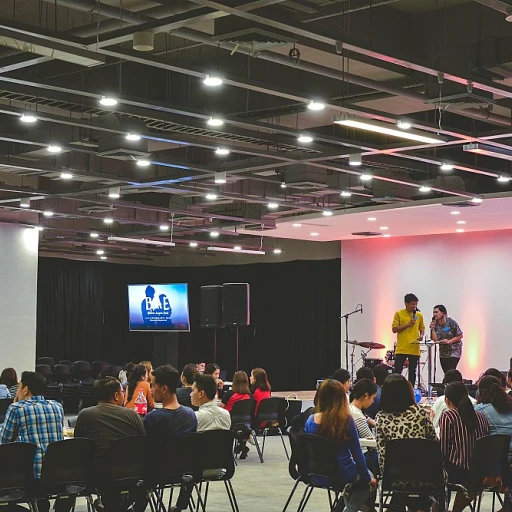
Understanding Employee Retention
Why Employee Retention Matters
Employee retention is a critical aspect of any successful company. It involves keeping talented employees engaged and committed to the organization over the long term. High retention rates are often indicative of a healthy company culture and can lead to better performance and success. When employees feel valued and recognized, they are more likely to stay with the company, reducing turnover costs and maintaining team stability.
The Cost of Turnover
Turnover can be costly for companies, not just financially but also in terms of productivity and morale. When a team member leaves, it can disrupt workflows and place additional burdens on remaining employees. The process of recruiting, hiring, and training new employees is time-consuming and expensive. By focusing on employee retention, companies can save on these costs and foster a more cohesive work environment.
Enhancing Employee Engagement
Engagement is a key factor in retention. Engaged employees are more productive, motivated, and committed to their work. Recognition programs, such as the 'Employee of the Year' award, play a significant role in boosting engagement. These awards acknowledge exceptional performance and contributions, making employees feel appreciated and valued. This sense of appreciation can lead to increased loyalty and a stronger connection to the company's values and goals.
For more insights on affordable ways to show appreciation and enhance retention, consider exploring affordable ways to show employee appreciation.
The Significance of Recognition Programs
The Power of Recognition: Fueling Motivation and Morale
Recognition plays a pivotal role in enhancing employee motivation and morale, significantly contributing to retention efforts. Employees who feel valued for their contributions are more likely to remain loyal to the company, creating a more stable and committed workforce. Organizations often implement recognition programs to celebrate exceptional performance and dedication. These programs can take the form of public acknowledgment during meetings, monthly or yearly awards, or shout-outs on the company’s social media platforms. Celebrating the dedication of team members through initiatives like Employee of the Year and Employee of the Month programs fosters a sense of belonging and appreciation among employees. This acknowledgment not only boosts the employees' morale but also promotes a culture of recognition within the company. Key practices in designing effective recognition programs include:- Aligning Awards with Company Values: It is crucial to ensure that the criteria for awards reflect the core values and objectives of the organization. This alignment helps reinforce desirable behaviors and work ethics among employees.
- Diversity in Recognition: Addressing different types of accomplishments by recognizing both individual and team contributions ensures that all employees, including graduate students and new staff, feel valued. Recognition can vary from acknowledging daily hard work to applauding long-term achievements.
- Fostering Inclusivity: Recognition should be accessible to all employees, encouraging participation across different levels and departments. This approach fosters a more inclusive company culture.
Criteria for Selecting 'Employee of the Year'
Defining Excellence in Employee Awards
Selecting the 'Employee of the Year' is a meticulous process that demands a robust criterion to honor a company's exemplary performers. The chosen criteria must align with the organization's core values while promoting employee engagement and establishing a culture of recognition.- Exceptional Performance: The baseline for any award is exceptional performance. Employees are evaluated on their contributions to the company’s success, their ability to inspire fellow team members, and their capacity to bring company values to life through their work.
- Consistent Contributions: The ideal employee continuously demonstrates hard work and dedication throughout the year. This doesn't merely involve meeting expectations, but rather, consistently exceeding them, making notable contributions month after month.
- Impact on Team Dynamics: A star performer not only excels individually but also uplifts the entire team. The positive influence on team dynamics and collaboration is a crucial aspect of outstanding employees.
- Promotion of Company Culture: It's vital for the award recipient to embody the company's culture. Their actions should resonate with the company's mission and vision, fostering an environment that encourages graduate students, national award seekers, and other employees to thrive.
- Social Responsibility and Engagement: A candidate for 'Employee of the Year' should actively participate in corporate social responsibility initiatives, and they should embody a sense of social awareness that translates into work engagement.
Impact on Workplace Culture
Fostering a Positive Environment
Implementing an 'Employee of the Year' award can significantly influence the company culture by fostering a positive environment. When employees see their peers being recognized for their hard work and exceptional performance, it sets a standard of excellence that others aspire to achieve. This recognition not only highlights individual contributions but also reinforces the company values, encouraging all team members to align with these principles.
Boosting Employee Engagement
Recognition programs, such as the 'Employee of the Year' award, play a crucial role in boosting employee engagement. When employees feel valued and appreciated, their motivation to contribute to the company's success increases. This heightened engagement can lead to improved performance across the board, as employees are more likely to invest their time and effort into their work. Furthermore, engaged employees often become advocates for the company, enhancing its reputation both internally and externally.
Strengthening Team Dynamics
Awarding employees for their achievements can also strengthen team dynamics. When a team member is recognized, it can inspire others to collaborate more effectively, knowing that their efforts might also be acknowledged in the future. This sense of camaraderie and mutual respect can lead to a more cohesive team, where members support each other in achieving common goals.
Encouraging Continuous Improvement
The 'Employee of the Year' award serves as a powerful motivator for continuous improvement. Employees are more likely to seek out opportunities for professional development and skill enhancement when they know that their efforts could lead to recognition. This drive for self-improvement not only benefits the individual but also contributes to the overall success of the company, as a more skilled workforce can adapt to challenges and innovate effectively.
Challenges and Considerations
Potential Challenges and Strategic Considerations
Employee recognition initiatives, including 'Employee of the Year' awards, play a pivotal role in shaping a company's culture. However, they do come with their set of challenges and require careful consideration to ensure they promote genuine engagement and inclusivity among all team members. Understanding that every recognition program needs a well-thought-out strategy is pivotal. Here's what companies should consider:- Diverse Criteria: It is essential for the selection criteria to be transparent and comprehensive. This ensures that the award resonates with the values of the company, aiming to reflect the contributions from all levels of work. When criteria are clear, it mitigates the risk of bias and promotes fairness.
- Avoiding Partiality: Being mindful to award employees without any bias is crucial. Whether it’s addressing the difference between long-standing employees and recent hires, or balancing recognition among various departments, impartiality enhances the perception of fairness.
- Addressing Social Perceptions: While awards like 'Employee of the Year' can foster healthy competition, they may also inadvertently create feelings of resentment if not all team members feel their hard work is acknowledged. Encouraging monthly recognitions or smaller, yet impactful, appreciations can balance these perceptions.
- Instilling a Balanced Culture: Awards should reflect the company's culture and encourage a shared vision of success. They should highlight teamwork, and not just individual accomplishments, to foster a culture of collective engagement and contribution to the company's overall goals.
- Adaptation to Changes: Just like any strategic practice, recognition programs need constant evaluation. As companies grow and transform, the programs should adapt to reflect the evolving values and goals. Keeping the awards relevant ensures that they maintain their impact and continue to promote engagement.
Long-term Benefits of Recognition
Enduring Advantages of Employee Recognition
Implementing an 'Employee of the Year' award can have lasting benefits that extend far beyond the immediate gratification of the recipient. When a company consistently recognizes exceptional performance, it reinforces a culture of appreciation and respect. This not only boosts employee engagement but also aligns with company values, fostering a sense of belonging among team members.
Recognition programs serve as a powerful tool for enhancing employee retention. When employees feel valued and acknowledged for their hard work, they are more likely to remain loyal to the company. This loyalty translates into reduced turnover rates, saving the company the significant costs associated with recruiting and training new employees.
Strengthening Company Culture
By celebrating the achievements of the 'Employee of the Year,' companies can reinforce a positive company culture. This recognition highlights the importance of contributions from all team members, encouraging others to strive for excellence. It creates a ripple effect, motivating employees to enhance their performance and contribute to the overall success of the company.
Moreover, such awards can be shared on social media, showcasing the company's commitment to its employees. This not only enhances the company's public image but also attracts potential talent who view the company as a desirable place to work.
Building a Cohesive Team
Recognition awards like 'Employee of the Year' can also foster a sense of camaraderie among employees. When team members see their peers being celebrated, it encourages a supportive environment where everyone works towards common goals. This sense of unity can lead to increased collaboration and innovation, driving the company towards greater achievements.
In conclusion, the long-term benefits of recognition programs are manifold. They not only enhance employee satisfaction and retention but also contribute to a thriving company culture. By valuing and celebrating the hard work of employees, companies can ensure sustained success and a motivated workforce.













